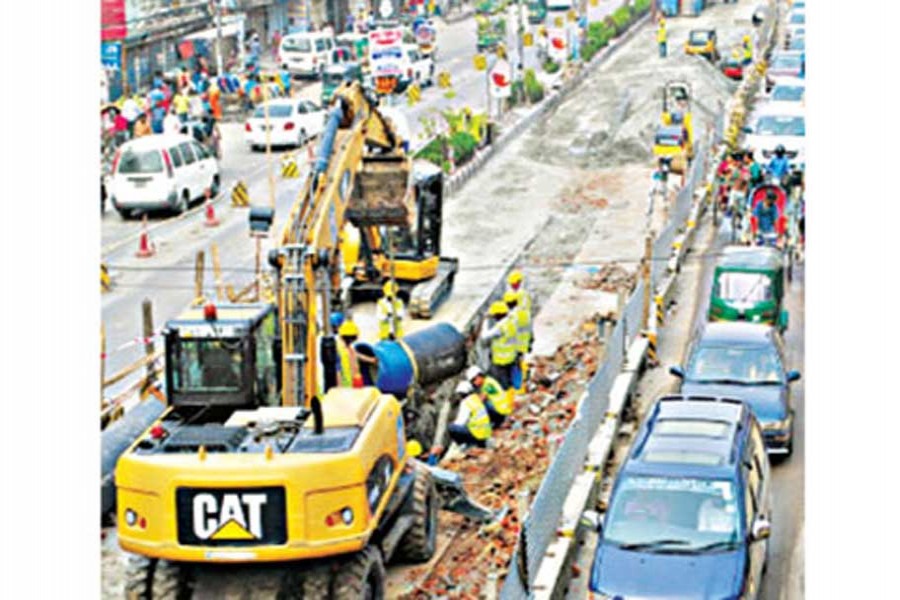
Published :
Updated :

Project implementation is not a strong point with ministries and organisations -public or private in this country. Without revised additional allocation and rescheduled implementation period hardly any development project in this country has ever been accomplished. Rescheduling obviously leads to cost overrun and prolonging suffering of people, particularly in case of mega projects involving construction in crowded areas of a city. A case in point is the Maghbazar-Mouchak flyover. Whether project implementation is delayed deliberately or not is, however, a completely different issue. In the process it becomes quite evident that the nation has accepted -albeit reluctantly -- this culture of delayed project implementation and its attendant ills as a fait accompli. However, for no nation it is an enviable record.
Yet if there is a will, things can be different and also for the better. A Japan International Cooperation Agency (JAICA)-funded project under which construction of three bridges -Kanchpur, Meghna and Gumti second bridge - and rehabilitation of existing bridges were undertaken, has broken free from the culture of delayed project implementation and cost overrun. No doubt a unique feat -if not unprecedented! Three companies or engineering firms were responsible for construction and repair of the bridges. Not only have they overturned the bad trend but are also poised to complete project execution well before the schedule and save a significant amount of money from the original allocation. There are reasons to be pleasantly surprised to know that the job is expected to be completed six months before time and it will save Tk 14.59 billion. An additional amount of Tk 2.5 billion will remain unspent on account of contract value because of early completion. Bringing ahead the implementation time is all the more significant in the context of six months lost on security grounds after the killing of foreign nationals including Japanese consultants involved with the project concerned in the Holey Artisan attack.
Now the Roads and Highways Department (RHD) has reportedly taken an initiative to utilise the money saved from the project for building additional infrastructure that will facilitate movement of traffic flows at Madanpur where a private economic zone will be set up. The saved money will be spent on developing an intersection, a pedestrian bay and a bus bay there, keeping an eye on the increased volume of traffic on the Dhaka-Chittagong Highway and around the economic zone.
So the message is loud and clear: if the construction companies take into consideration an actual financial estimate and physical infrastructure to be built, there is no reason for rampant project delay and cost escalation all the time. It may happen in rare cases but not every time a project is undertaken for execution. In case of the JAICA-funded project, the project has been revised only for slashing the expenditure and also addition of infrastructural components which will serve as extra facilities for the future. Clearly, the elements of management efficiency and honesty work wonder. Here is a lesson for project implementation authority in this country.


 For all latest news, follow The Financial Express Google News channel.
For all latest news, follow The Financial Express Google News channel.